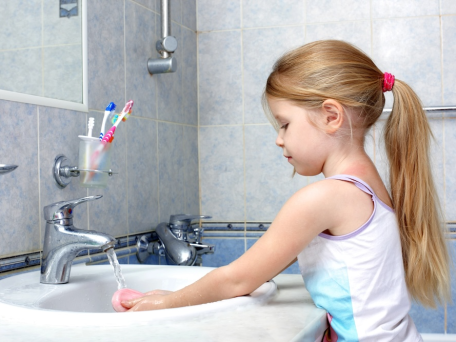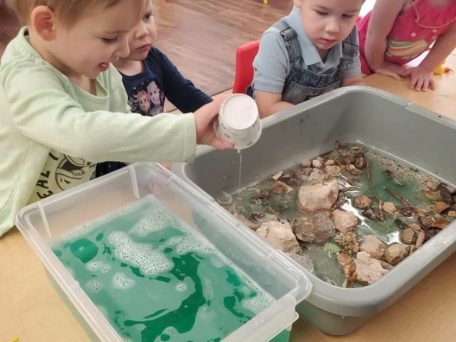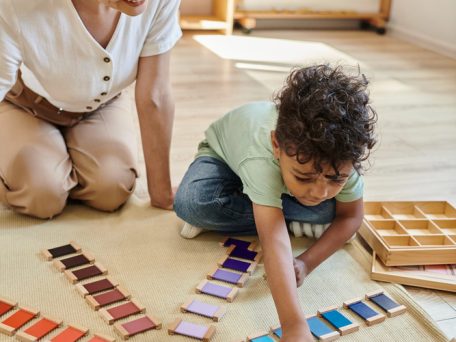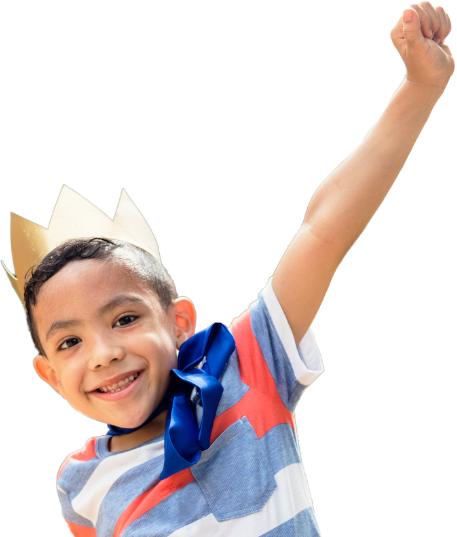With cold and flu season just around the corner, we all want to do as much as we can to avoid getting sick. That’s hard with little kids with busy hands that want to explore the world around them. Regular handwashing can help cut down on how many germs a child is exposed to, but only if they wash properly.
This can be a hard concept for children. Even when handwashing is demonstrated slowly and patiently, a child may not grasp how to get the soap all over their hands, or that they need to wash for longer than a few seconds.
A visible demonstration can really help kids see what good handwashing practice looks like, and you can give this to your kids with a simple, household item.
Cinnamon and Oil for Visible “Germs.”
To help your child learn proper handwashing skills, all you need is some plain vegetable oil and a sprinkle of cinnamon. Apply the oil to your child’s hands, followed by a sprinkle of cinnamon. Now they can see the mess on their hands very visibly.
Let the child try to wash their hands off. While you might share step-by-step instructions, sometimes it’s also better to ask open-ended questions and let them explore a good handwashing technique on their own.
Let them explore what happens they just rinse their hands off quickly. Did the oil and cinnamon come off? If not, what might work to try and make their hands clean. Would soap work better? Warm water instead of cold?
By letting them trouble shoot the problem of visibly dirty hands, you help them understand handwashing more thoroughly. The next time they go to wash their hands, they may remember how helpful soap and warm water is in washing up.
Testing Theories
When the child has decided that they’ve finished with their handwashing, they can test how well they did by wiping their hands on a clean paper towel. Together, look at the paper towel. Did any smudges from left over bits end up on the towel? What does that mean for clean hands?
They may decide they need to wash their hands again more thoroughly, or if the paper towel is clean give themselves a little pat on the back. Either way, they have a clear idea now of what to do the next time they need clean hands.
Hand washing is an important part of life. People wash their hands after going to the bathroom, before eating, and any time their hands get dirty. How well hands are washed can determine how often someone gets sick, so good handwashing practices are essential.
By practicing handwashing in a way a child can visibly see, kids have a better chance of remembering what to do and how to do it the next time they need to wash their hands. This exploration-based method of learning takes the pressure off of kids and let them troubleshoot a problem all by themselves, creating positive learning on many different levels.












